The Venezuelan ambassador to Tehran, David N. Velasquez Caraballo, says the deal will undermine the “military balance in the region” and will “affect regional security.”
Venezuelan President Hugo Chavez has called the move a serious threat, warning “the winds of war were beginning to blow” across the region.
The U.S. claims the bases will be used to fight terrorism and drug trafficking.
However, the Venezuelan ambassador says this is just a “pretext” being used by the U.S. to increase its military presence in Latin America.
He said the agreement would give U.S. troops immunity from prosecution in Colombian courts.
“These bases will affect our security and disrupt tranquility in the Latin American region,” Velasquez Caraballo told the Tehran Times in an exclusive interview conducted on Monday.
He said, “We recently experienced the Honduras coup with the help of American troops, and history clearly shows U.S. military interventions in the region.”
“We have no doubt about the repercussions of setting up bases and regard it as an invasion because the U.S. and Colombia falsely accuse Venezuela of supporting FARC and terrorist groups in the world.
“Military bases will make the Colombian military more powerful, and when the U.S. and Colombia accuse us of supporting terrorism without presenting any evidence, they can use it as an excuse and attack Venezuela.”
To document his government’s worries, the ambassador cited the incursion of Colombian troops into Ecuador in March 2008 in pursuit of Colombian rebel leader Raul Reyes, which prompted the Ecuadorean president to call for an immediate meeting of the Organization of American States and the Andean Community of Nations to protest the military incursion.
Policy of peace
The ambassador said that Venezuela is pursuing a “policy of peace” in the region, and with this aim in mind, the Union of South American Nations (UNASUR) has proposed a deal to resolve the Colombian crisis.
There is no military solution for the war between FARC and the Colombian government, which has dragged on for about 50 years, he added.
“This is a problem that can only be solved through political means.”
Velasquez Caraballo dismissed accusations that Venezuela and Ecuador are in contact with FARC, saying neither Venezuela nor Ecuador has any kind of relationship with the FARC group.
“Venezuela has no ties with FARC. Ecuador also has no ties. And this is a great lie that Mr. Chavez and the president of Ecuador support FARC.”
Asked why the U.S. wants to gain access to military bases in Colombia, he said Washington wants to control the region’s natural resources such as oil, fresh water, and the Amazon rain forest since the United States does not have enough resources.
For example, the U.S. attacked Iraq in order to gain control of its oil fields, he said.
After Colombian troops crossed the border into Ecuador in search of FARC rebels in 2008, Venezuela closed its embassy in Bogota.
“Our decision to cut (diplomatic) ties with Colombia had nothing to do with FARC or intervention in Colombia’s internal affairs. It was just due to the behavior of the Colombian government, which affected relations between the two countries.”
He added, “We Venezuelans regard the people of Colombia as our brothers… and that is why we do not think of war at all.”
“Any kind of war will only benefit American imperialism.”
Latin American nations share a common culture, and Simon Bolivar, who served as the liberator of all regional countries, also unified regional nations, he noted.
For example, the ideas promoted by Simon Bolivar, such as peace and unity, are also popular in Panama and Colombia, he said.
Relations with the U.S.
Asked whether Caracas intends to warm up its relations with Washington, the ambassador said, “We have always intended to improve our relations with the U.S.”
He said Venezuela seeks an equal partnership with the United States. “We want better relations, but it should be without preconditions, and the U.S. should not view us as a colony.”
For example, for about 50 years Cuba has been trying to establish ties with Washington, but each year the U.S. Congress extends the sanctions against the island nation, the Venezuelan ambassador stated.
The United States has been opposing the emergence of socialist-minded leaders and leftist governments in the Latin American region, but contrary to U.S. wishes, more and more leftist governments are taking the helm in South America, he observed.
Venezuela-Russia military ties
The ambassador defended his country’s military ties with Russia, saying the goal is to create a “balanced world”.
“In fact, Venezuela’s military cooperation with other countries is intended to establish a balanced world, a world in which the U.S. does not determine everything,” the ambassador noted.
However, there is a distinction between Venezuela’s military purchases from Russia and Colombia’ decision to allow the U.S. to set up military bases in the country, he said.
“Colombia can have military ties with any country, (just) as Venezuela can, but Venezuela has not given any military bases to China, Russia, or Iran.”
Moreover, Washington refuses to sell military equipment, including fighter jets and spare parts, to Venezuela and prevents the transfer of technology to the country, he pointed out.
For example, Venezuela has F-16 fighters which cannot fly because the U.S. refuses to sell spare parts to the country, he stated.
However, the United States has heavily armed Colombia, and in fact U.S. relations with Colombia can be compared with U.S. relations with Israel, he added.
“The U.S. is trying to turn Colombia into an Israel in the region.”
But no country should be worried about Venezuela’s arms purchases from other countries since these weapons are conventional and just for defensive purposes, he said.
Iran, Venezuela drawing up roadmap for decade of cooperation
Tehran and Caracas have entered the 70th year of their ties, but relations between the two countries have improved significantly since Hugo Chavez took office in Venezuela, a move which has alarmed the U.S.
The two sides have established close cooperation in the areas of energy, agriculture, industry, and petrochemicals.
The ambassador said Iran and Venezuela have signed about 200 cooperation agreements and the two countries are currently implementing 70 joint projects.
Ties between Iran and Venezuela are being strengthened, and the two countries have also developed good political and cultural ties.
Venezuelan President Hugo Chavez arrived in Tehran on Saturday for talks with Iranian President Mahmoud Ahmadinejad and other senior officials of the Islamic Republic.
“Mr. Chavez will visit Iran to sign agreements in the research and educational spheres,” the ambassador announced.
Iran and Venezuela have also agreed to draw up a roadmap to set the stage for economic cooperation for the next decade.
“This year we will sign a roadmap deal for cooperation for the next ten years,” Velasquez Caraballo said.
And Venezuela is in the process of opening a bank in Iran and facilitating visits to Venezuela by Iranian citizens, he added.



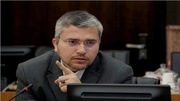
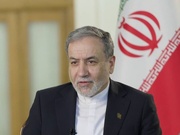
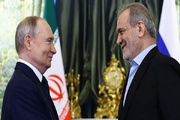

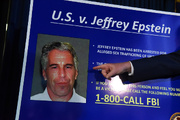
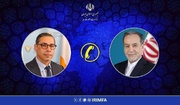
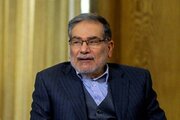
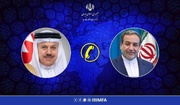
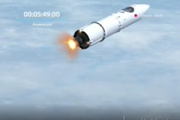
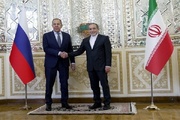





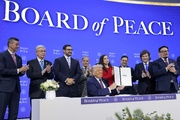

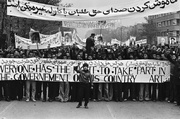
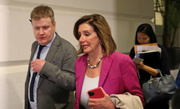
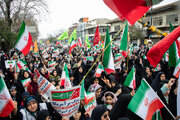
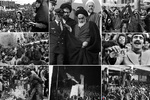
Your Comment